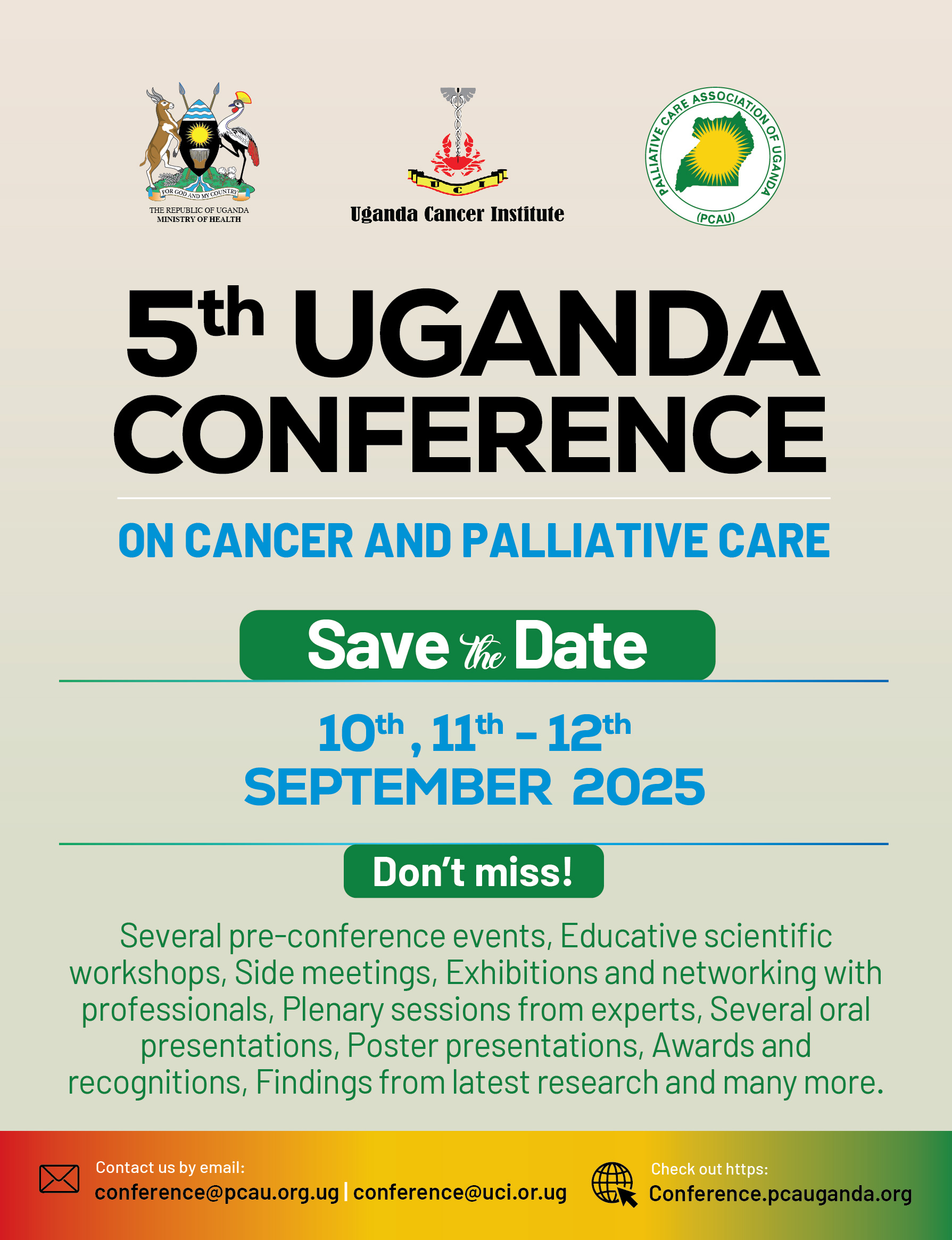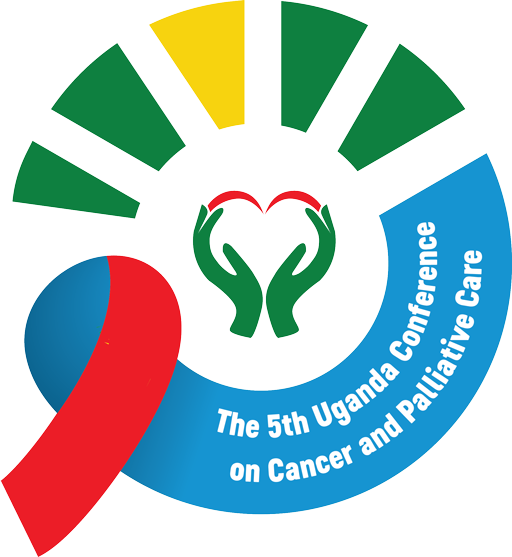Call for Abstracts
On behalf of UCI and PCAU the Scientific Committee is calling out for abstracts relating to any of the following topics/tracks.
1. Personalized and Culturally Inclusive Care
This track explores the importance of tailoring care to diverse populations by integrating cultural, spiritual, and ethical considerations into healthcare delivery. It highlights approaches that enhance patient-centered care, survivorship, and emotional well-being.
- Tailoring care to diverse populations: Adapting to different socio-economic, ethnic, and geographic backgrounds.
- Cultural competence and end-of-life care: Training healthcare providers to deliver care that respects cultural values and traditions. • Spiritual, religious, and ethical considerations in care delivery: Integrating faithbased and ethical perspectives into care.
- Integrating alternative, complementary, and traditional healing practices: Exploring the role of traditional medicine and holistic approaches in care.
- Nutrition and wellness: Addressing the impact of diet, lifestyle, and nutrition on patient outcomes.
- Psychological and emotional support for patients and families: Managing the mental health challenges associated with diagnosis and treatment.
- Advance care planning and decision-making: Empowering patients and families to make informed choices about their care journey.
- Epidemiology and registration: Exploring the evolving landscape for cancer trends, understanding disease patterns, guiding healthcare policies.
- Diagnosis and treatment: Exploring the advances in diagnosis, and innovative treatments.
- Survivorship, navigating life beyond treatment: Supporting long-term well-being, rehabilitation, and quality of life post-treatment.
- Addressing grief, loss, and bereavement: Exploring approaches to support individuals and families coping with loss.
- Modern diagnostics and treatment advancements based on disease specifics: Leveraging precision medicine, genetic testing, and targeted therapies for personalized treatment.
2. Community-Driven Care Models
This track focuses on the role of communities in improving health care, highlighting grassroots initiatives, caregiver support, and the integration of services into primary healthcare. It explores strategies to enhance access, early detection, and patient-centered care through community driven efforts.
- Grassroots initiatives and community-based care networks: Expanding locally led programs that improve access to care and treatment.
- Empowering individuals, families, and communities: Equipping communities with knowledge and resources to support patients throughout their care journey.
- Enhancing the role of volunteers: Leveraging community volunteers to provide companionship, symptom management support, and advocacy.
- Prevention and early detection programs: Strengthening community-led screening, vaccination, and awareness campaigns to improve early diagnosis.
- Integrating palliative care into primary healthcare systems: Embedding palliative care within primary health systems to ensure accessibility and continuity of care.
3. Innovation, Technology, and Artificial Intelligence (AI)
This track explores how emerging technologies and AI are transforming care. It highlights digital tools, predictive analytics, and cutting-edge therapies that enhance access, improve patient outcomes, and optimize care delivery while addressing implementation challenges and ethical considerations.
- Telehealth and digital tools: Expanding remote consultations, mobile health applications, and digital platforms to bridge healthcare gaps.
- AI and big data: Leveraging machine learning and data-driven insights to enhance diagnostics, treatment planning, and personalized care including addressing concerns related to data privacy, algorithm bias, and clinical decision-making.
- Research regulation: Examining ethical guidelines, policy frameworks, and regulatory challenges in conducting research, ensuring compliance with national and international standards.
- Assistive technologies for patient comfort: Exploring innovations such as wearable devices, robotic assistance, and smart monitoring systems.
- Virtual reality and alternative therapies: Examining immersive technologies and non-pharmacological interventions for aspects like pain relief, anxiety reduction, and patient well-being.
- Modern aspects of care including Gene and Cellular therapies: Investigating advancements in precision medicine, immunotherapy, and regenerative treatments.
- Social media: Explore how social media is being used to raise awareness, share inspiring patient stories, and amplify the work.
4. Empowering Healthcare Professionals and Caregivers
This track focuses on strengthening the capacity, well-being, and leadership of healthcare professionals and caregivers. It explores strategies to enhance training, communication, resilience, and advocacy, ensuring that providers are well-equipped to deliver compassionate, high-quality care.
- Self-care, mental well-being, and resilience care providers: Addressing burnout, emotional fatigue, and stress management for healthcare workers and caregivers.
- Communication strategies for difficult conversations: Improving provider-patient interactions in discussions on diagnosis, prognosis, treatment choices, and end-of life care.
- Education and training programs: Expanding specialized training, continuous professional development, and skills enhancement.
- Leadership, mentorship, and advocacy: Building strong healthcare leaders and mentors while advocating for improved policies and resource allocation.
- Interdisciplinary collaboration and teamwork: Encouraging seamless coordination among practitioners in oncology, palliative care, other health care professionals and caregivers.
5. Advocacy, Policy, and Sustainable Financing
This track explores the role of policy, advocacy, and financing in shaping care systems. It highlights strategies to influence decision-making, strengthen legal frameworks, and secure sustainable funding to ensure equitable access to quality care.
- National and global policies shaping care access: Examining healthcare policies, guidelines, and international commitments influencing service delivery.
- Ethical dilemmas and decision-making in patient care: Addressing complex issues in treatment choices, end-of-life care, and patient rights.
- Legal and regulatory frameworks: Strengthening governance structures, legal protections, and institutional policies for improved care access.
- Advocacy for equitable access to services: Mobilizing stakeholders to drive policy change, resource allocation, and public awareness.
- Financial models and sustainable funding mechanisms: Exploring health financing strategies, insurance coverage, and alternative funding sources.
- Public-private partnerships: Leveraging collaboration between governments, NGOs, and the private sector to improve service delivery.
- Innovative healthcare financing solutions for low-resource settings: Developing cost-effective approaches to expanding care services in underserved areas.
6. Care for Special and Underserved Populations
This track focuses on addressing the unique challenges faced by populations with specific healthcare needs, ensuring equitable access to care. Discussions will explore barriers, policy considerations, and tailored interventions to improve outcomes for these groups.
- Paediatric and adolescent care: unique challenges and solutions: Specialized care approaches for children and young adults.
- Care for people with disabilities: Ensuring accessibility, tailored interventions, and equitable healthcare services.
- Geriatrics: Addressing aging with dignity and age-related treatment considerations.
- Pregnant women and women of childbearing age: Managing cancer and serious health related suffering during pregnancy, fertility preservation, and maternal health considerations.
- Uniformed officers (military, police, security forces): Occupational health risks and access to specialized care for uniformed officers.
- Prisoners and incarcerated individuals: Addressing barriers to early detection, treatment access, ethical considerations, and care in correctional facilities.
- Expanding accessibility and inclusion: Strategies to reach underserved populations and ensure culturally appropriate care.
Authors of accepted abstracts will be invited to present their work at the 5th Uganda Conference on Cancer and Palliative Care which is being held on the 10th – 12th September 2025. The conference will be held in person. Abstracts will be published in the conference abstract book and will be available on the Conference, UCI, and PCAU websites.
Timely submission of abstracts is critical to the success of the conference programme. The deadline for submitting Abstracts is 5pm (EAT) on Friday 9th May 2025.
The Scientific Committee will contact authors regarding their submissions by Friday 6th June 2025.
Abstracts must be submitted via the conference website and abstract submission will be open from Friday 21st March 2025.
The Scientific Committee looks forward to receiving Abstracts in response to the call, your participation in this effort will contribute to the success of the 5th Uganda Conference on Cancer and Palliative Care.
OPENED ON
21 March, 2025

Are ready to submit your Abstract?
Click the button below to create an account and submit an abstract.
